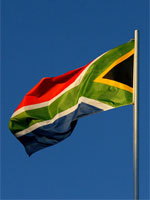The government is considering the introduction of a policy to compel ships to be registered in SA before they are allowed to move goods between the country's ports - a policy regarded by the shipping industry as protectionist and restrictive.
Cabotage, as this practice is called, is one of the levers the Department of Transport is considering to include in a new policy framework for the maritime sector, the department's director-general, George Mahlalela, said yesterday.
About 12000 foreign-owned, deep-sea trading vessels regularly call at SA's ports every year and carry about 98% of the country's internationally bound cargo.
In 2008, the African Union adopted the African Maritime Transport Charter aimed at promoting local shipping in Africa.
It identified cabotage "as one way of promoting local shipping activity", Mr Mahlalela said. SA, Ethiopia and Egypt have started developing policies to meet the goals of the charter.
The Department of Transport is eager to attract ships to its registry in the hope it will stimulate and attract maritime services and supporting industries to invest in SA.
SA no longer has any ships registered under its flag after Safmarine's Oranje deregistered in January last year.
The loss of tonnage had led to a loss of skills, Mr Mahlalela said. SA's ship repair and shipbuilding industries were no longer able to offer maintenance and the advanced services shipping lines required.
The biggest reason for the loss of tonnage is SA's unattractive tax regime. Shipping world leader Singapore uses a tonnage tax that taxes shipping activities at fixed rates according to the size of the ships instead of the company's operating performance. In SA, shipping companies would be required to pay tax of about 39% - the combined effective tax rate of company and dividend taxes.
Andrew Thomas, CEO of Ocean Africa Container Lines, which offers regional services, said any form of protectionism in the maritime sector would not be positive.
"We don't think it's the way to go. We don't recommend any form of restrictive practice," he said.
"If we wish to create a maritime sector in terms of ship register, we need to focus on being competitive on a global basis. Shipping is a global business."
Mr Thomas said the tax regime, labour policies, work permits and institutional bureaucracy made the maritime sector in SA unattractive.
At any given time, there were between 1700 and 1900 ships off SA's coast, Mr Mahlalela said.
While billions of rand are spent annually on maintaining SA's economic exclusion zone, the country was deriving very little benefit from the traffic off the coast.
According to a sector review compiled by the South African Maritime Safety Authority ahead of a conference it will host in Cape Town next month, this represents an opportunity cost to SA.
About R36bn is paid annually for shipping services but this "only accrues to foreign owners and operators", the review says.
Mr Mahlalela conceded the idea of coercing companies to register ships in SA did not enjoy support from "certain parts of the sector".
"Some of our trade institutions are not happy about it, but we are not saying we have finalised. It is part of the conversation we are having on maritime development," he said.
The European Union, Canada, the US, Japan and New Zealand have cabotage rules to protect their shipping industries.
Source: Business Day































